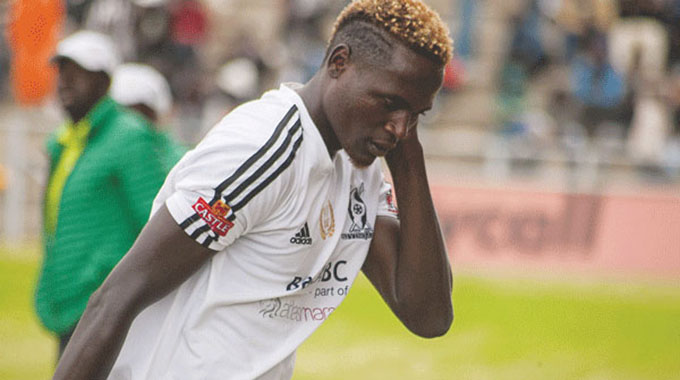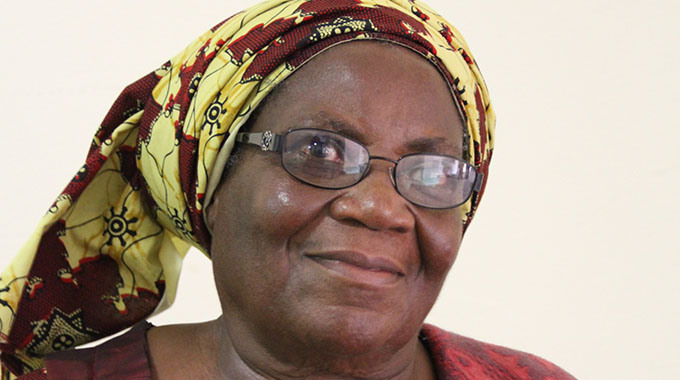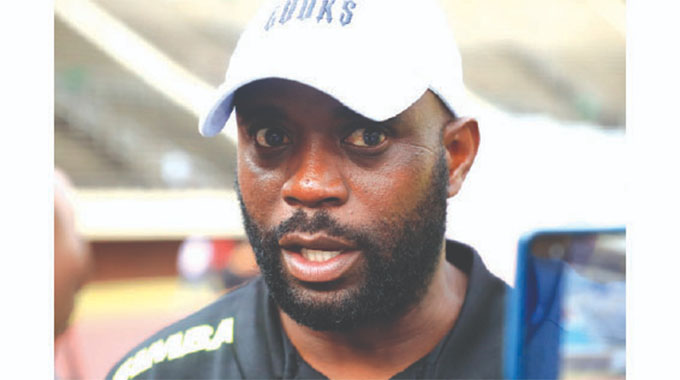Sables in doomed run

Petros Kausiyo Deputy Sports Editor
JUST like last year, Zimbabwe have found themselves in familiar territory, with the Sables crumbling story changing from a possible 2019 World Cup dream to the grim prospects of Rugby Africa Gold Cup relegation.
That is the reality that confronts Peter De Villiers and his bunch of misfits after they slumped to their third win-less Gold Cup assignment following their 18-14 defeat by Tunisia in Beja on Saturday.
Unlike last year when they also managed just one win over relegated Senegal, this year’s Gold Cup is also serving as the qualifying tournament for the 2019 World Cup in Japan with only the group winners securing an automatic place while the runners-up will have to take part in another play-off round.
But after three matches of a campaign, which began in Harare on June 16 amid high expectations that former Springboks coach De Villiers would bring a “Midas touch’’ that would end the Sables’ 27-year wait for a place at the World Cup, his adventure has in fact turned into a doomed mission.
Even with two more games to spare and having been better remunerated and well catered for unlike the scenario in the last two years when they played without any appearance fees, this class of Sables just do not seem to have the wherewithal to grind a victory with both the technical crew and the players looking lost.
Yet these Sables who made the headlines more for their off-field complaints than their exploits on the pitch last week, had seemed on course to register their first win when they took a 14-5 lead against Tunisia early in the second half.
Zimbabwe, seeking to punish the North Africans for the hostile reception they treated them to last Monday, had taken a narrow 7-5 half-time lead following a brilliant individual try by flyhalf Lenience Tambwera, which he converted.
In scoring the first of his brace on the day, Tambwera ensured Tunisia 5-0 lead off a 24th minute try by Mohamed Mliss lasted just three minutes
Tambwera was back on the scoreboard again in the 51st minute, planting another try which the Harare Sports Club man also converted and at 14-5, the Sables seemed to have found a way to finally exorcise the demons that have characterised their miserable run under De Villiers, which has turned into a huge embarrassment.
Zimbabwe had earlier on in the game survived a scare when after just six minutes Mohamed Ali Gafsi missed a penalty.
But the contest turned on its head for the pathetic Sables who have virtually been clueless and continue to commit the same calamitous handling errors, cannot get their execution well with the offload, poor at rucks and recorded too many knock-ons for this level of the game.
The hosts started to claw their way back into the game after 57 minutes when Mohamed Ali Gafsi scored a penalty before Issam Ouerhani dotted down a try, which the former converted four minutes later.
And at 15-14 after 61 minutes there was time for the Sables to bounce back.
But it needed De Villiers and his men to conjure up something special and swing the pendulum back into their way but that something extraordinary and that character needed for this big stage has been absent from this side and it did not show again in Beja.
Just like they did the previous weekend in Nairobi when that even let slip a lead and conceded two late and easy tries at the death to lose 45-36 to Kenya, the Sables found themselves on the back foot in Beja, from which they could not fight back.
Instead it was the Tunisians who put the result beyond doubt with a drop goal off the last kick of the match sealing the contest.
“What went wrong was obviously costly errors from our end. Each time we made a mistake, it got Tunisia back in the game. We lacked composure. Tunisia took advantage of that window of mistakes, that’s what sport is about, when you are given an opportunity, take it and go for it,’’ De Villiers told the media after the game.
With the victory guaranteeing his team four points and a jump from the bottom of the log and into third place behind leaders Namibia (15) and Kenya (12) who overcame neighbours Uganda 38-22 in an earlier game in Nairobi, Tunisia’s Ahmed Guerbech had every reason to be the more excited of the two coaches.
“On the international level, we beat Zimbabwe last year. We prepared well for this game. We still have three more games that are not going to be easy, two of which are away games. Today, we guaranteed an 80% chance of staying in Group A.
The players spared no effort and they were true gladiators on the pitch, they made sacrifices by leaving everything behind and joining the team. Bravo to the team,” Guerbech said.
Only winless Uganda now lie below the Sables on the six-team log standings but the Cranes could draw some hopes from the fact that they have played a game less and will also be at home to Zimbabwe in Kampala.
But as the Sables return home, with a reputation of being more of cry-babies than soldiers, a lot of questions will be asked on what where it all went wrong.
In that soul-searching exercise De Villiers and his assistant Brendon Dawson would have to take much of the flak for entrusting their faith in a squad that has turned into some Sables misfits and without taking time do a lot of research or consultations.
That Zimbabwe have had a new scrumhalf for each game and do not have consistent forward pack suggests that by the time the World Cup qualifiers started, De Villiers and Dawson had still not identified the core of their team and had also not done their homework on their opponents.
Former Sables coach Godwin Murambiwa had warned after the draw against Morocco that the realistic target for this country would be to start preparing for the 2023 World Cup.
Murambiwa noted with concern that the bulk of the players in the current squad were not the right quality on which even a 2023 World Cup bid could be built with the veteran coach also suggesting that for this Gold Cup adventure, the Sables needed to have brought in at least six of the many Zimbabweans dotted around the globe who are playing in competitive professional leagues.










Comments